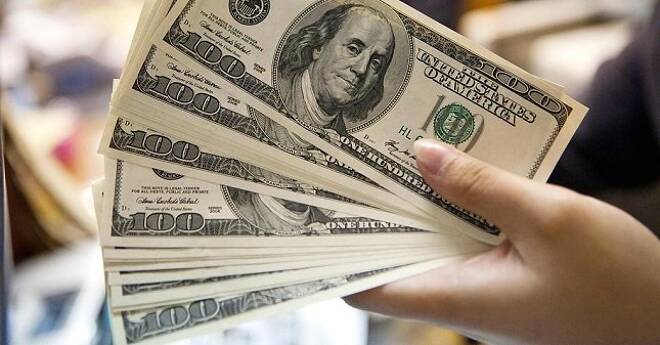Advertisement
Advertisement
The Dollar Gained Traction in the Wake of the Fed Annoucement; The BoJ Left Rates Unchanged
By:
European stocks are higher on Thursday while Asian shares were mixed with the Nikkei notching up slight gains. European yields moved broadly higher, in
European stocks are higher on Thursday while Asian shares were mixed with the Nikkei notching up slight gains. European yields moved broadly higher, in the wake Fed announcement. Yield rose as the Fed confirmed the launch of quantitative tightening and kept rates unchanged, but left the rate hike for December on the table, along with consensus for three more hikes next year. Eurozone spreads widening as the Fed’s course will also give the ECB more room to take the foot off the accelerator without spooking FX markets.
The Fed announced its balance sheet runoff which will begin in October and left interest rates unchanged. Though FOMC participants looked past the near-term disruption effects of the 3-category-4 hurricanes that have hit the U.S., they did predict a temporary inflation boost from higher prices on gasoline and the like. A December hike remains on the table, along with three follow-ups next year, if implementation of balance sheet reduction goes according to plan.
The BoJ Left Rates Unchanged
The Bank of Japan kept interest rates unchanged and maintained a positive view of the economy, say that the economic recovery will gradually accelerate inflation towards its 2% target without additional monetary stimulus. The Central banks new board member Goushi Kataoka dissented to the BOJ’s decision, as he believe there is a need for more accomodation, saying current monetary policy was insufficient to push inflation up to 2% during fiscal 2019. The BOJ maintained the 0.1% it charges on a portion of excess reserves that financial institutions park at the central bank. The decision was made by an eight-to-one vote.
BoJ Governor Kuroda said it was “hard to show a specific exit strategy” now, during his post-policy meeting press conference. He said that the BoJ will “patiently continue accommodative policy to achieve 2% inflation,” repeating the what was already said in the statement, that “we will take further monetary easing steps if necessary.” Kuroda also reaffirmed the central bank’s commitment to its yield curve control policy after the Fed’s hawkish guidance. He said that Japan’s economy is recovering, as is the case of Europe and the U.S, but stressed that inflation in Japan is “still distant from the BoJ’s target,” and that it is “natural for monetary policy to differ country by country.”
The ECB is working on new benchmark for overnight-rate. The central bank announced Thursday that the Financial Services and Markets Authority, the European Securities and Markets Authority, the ECB and the European Commission started to working group charged with the “identification and adoption of a risk free overnight rate, which can serve as a basis for an alternative to current benchmarks used in a variety of financial instruments and contracts in the euro area”. Once recommendations are on the table, the group will also “explore possible approaches for ensuring a smooth transition to this rate, if needed in the future”.
About the Author
David Beckerauthor
David Becker focuses his attention on various consulting and portfolio management activities at Fortuity LLC, where he currently provides oversight for a multimillion-dollar portfolio consisting of commodities, debt, equities, real estate, and more.
Advertisement
